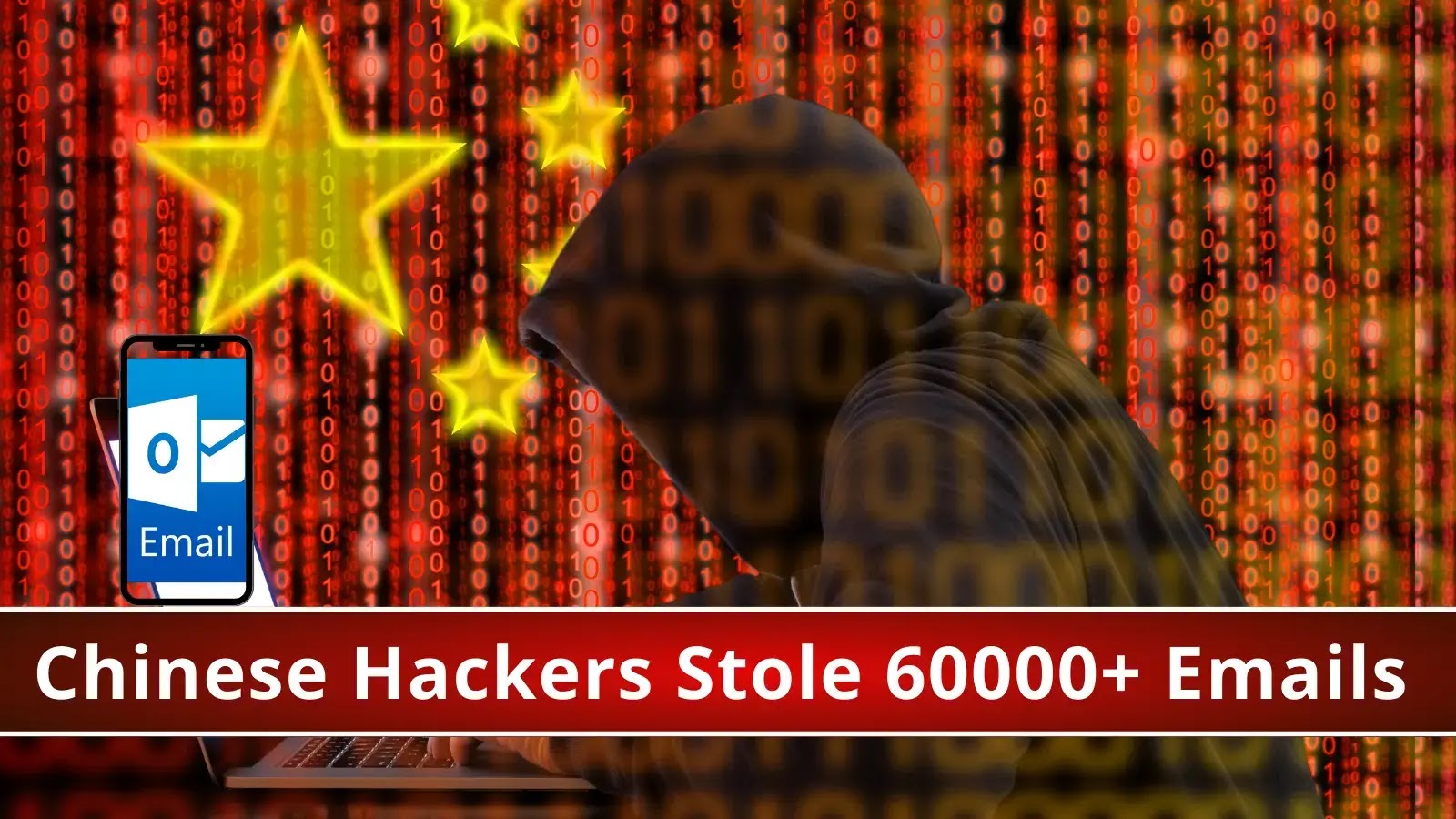Chinese Hackers Breached Microsoft's Email Platform to Steal 60,000+ US Govt Emails

In a major cybersecurity breach, Chinese language hackers efficiently infiltrated Microsoft’s electronic mail platform earlier this yr, ensuing within the theft of tens of thousands of emails from the U.S. Enlighten Department accounts, per data shared by a Senate staffer who attended a briefing by Enlighten Department IT officials.
The breach came to light as Enlighten Department IT officials revealed that roughly 60,000 emails had been stolen from ten Enlighten Department accounts in some unspecified time in the future of the attack.
Particularly, nine of the affected accounts had been linked to folk working on issues relating to East Asia and the Pacific, while one fable was centered on European affairs.
This revelation is piece of an ongoing investigation into a sequence of cyberattacks which enjoy rocked hundreds of U.S. organizations.
Deploy Improved AI-Powered Email Security Solution
Imposing AI-Powered Email security alternatives “Trustifi” can stable your change from this day’s most lethal electronic mail threats, corresponding to Email Tracking, Blockading, Modifying, Phishing, Story Take Over, Trade Email Compromise, Malware & Ransomware
Subtle Infiltration:
In July, both U.S. officials and Microsoft disclosed that articulate-linked Chinese language hackers had gained unauthorized entry to electronic mail accounts in roughly 25 assorted organizations, along with the U.S. Commerce and Enlighten Departments.
On the different hand, the paunchy extent of the compromise and the doable consequences of the stolen emails remain unclear, reads the Reuters file.
The allegations that China was accountable for these cyberattacks enjoy additional strained already anxious family members between the US and China.
Beijing has vehemently denied any involvement in these breaches.
The compromised Enlighten Department electronic mail accounts had been primarily historic for Indo-Pacific diplomacy efforts.
Shockingly, the hackers also managed to catch a comprehensive list containing the total division’s emails.
This high-profile breach has put the highlight on Microsoft’s substantial role in providing IT companies to the U.S. govt.
Requires Action:
The Enlighten Department has initiated measures to toughen its cybersecurity defenses.
These measures consist of transitioning to “hybrid” environments that involve a total lot of supplier companies and an increased adoption of multi-ingredient authentication.
The hackers’ initial point of entry into the Enlighten Department’s systems was the compromise of a Microsoft engineer’s blueprint, which supplied them entry to the Enlighten Department’s electronic mail accounts, per particular parts shared in some unspecified time in the future of the briefing.
Senator Eric Schmitt, whose staffer supplied these fundamental parts, emphasised the want for stronger cybersecurity defenses and called for a reevaluation of the federal govt’s reliance on a single supplier for severe companies.
Microsoft has no longer but issued an instantaneous comment in step with these tendencies.
The tech huge has faced overview over its security practices within the wake of these breaches and beforehand said that the hacking community within the serve of the attacks, is named Storm-0558, had targeted webmail accounts running on the firm’s Outlook provider.
Efforts to attain the Enlighten Department for comment had been unsuccessful at the time of this file, and Senator Schmitt was no longer readily available for additional interviews.
This breach serves as a stark reminder of the evolving nature of cyber threats and the severe significance of securing sensitive govt data in an additional and additional digital world.
Source credit : cybersecuritynews.com


